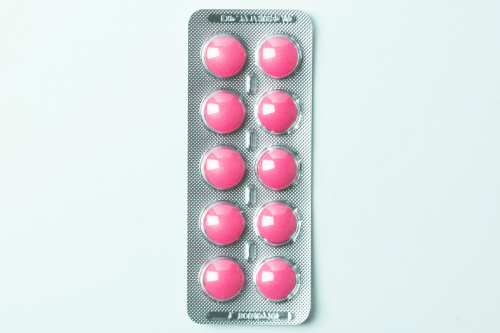

Benadryl, the brand name for diphenhydramine, is a widely used over-the-counter medication (OTC) primarily for treating allergies and cold symptoms. It is used to relieve symptoms of allergy, hay fever, and the common cold.
However, what most people don’t realize is that Benadryl can be addictive when misused or taken in large doses over an extended period. This leads to the dangerous cycle of Benadryl addiction. In this blog, we’ll delve deep into the topic, covering the symptoms, effects, withdrawal process, and available treatment options for those struggling with addiction.
Benadryl abuse occurs when someone becomes dependent on the drug, not just for relieving allergy symptoms, but for its sedative effects. Many users initially take Benadryl to help them sleep, but repeated misuse can lead someone to get addicted to benadryl. Over time, the body builds tolerance, requiring higher and higher doses to achieve the same effect. This is where addiction begins.
People may mistakenly believe that because Benadryl is an OTC medication, it’s completely safe. However, frequent or long-term use of this drug can lead to a range of physical and mental health problems, making it crucial to recognize the signs of addiction early on.

Benadryl misuse is often subtle at first, making it hard to spot. However, as tolerance builds and dependency grows, certain telltale signs emerge. Here are some of the key symptoms of Benadryl addiction:
Increased Tolerance: A person addicted to Benadryl will need higher doses over time to achieve the same sedative effects. What may have started with a single pill may escalate to several pills at once.
Compulsive Use: Addicts may take Benadryl more frequently than prescribed or use it for reasons other than its intended purpose, such as to relax or escape from stress.
Cravings for Benadryl: An individual might feel a strong urge or need to take the medication, even when it’s not necessary for treating symptoms like allergies or motion sickness.
Physical Symptoms: Frequent Benadryl users may experience blurred vision, dry mouth, and dizziness. Some may also have difficulty urinating or develop issues with coordination.
Psychological Dependence: The sedative properties of Benadryl may make it psychologically addictive, causing individuals to rely on it to fall asleep or manage anxiety.
These symptoms should not be ignored. Left unchecked, they can lead to a deeper dependency that requires professional help to overcome.
Why do people become addicted to Benadryl? Addiction to this commonly used drug can result from a variety of factors, such as:
Self-Medication: Many people initially take Benadryl to address short-term issues like insomnia or anxiety. However, repeated use without professional medical advice can lead to psychological dependence and addiction.
Misuse for Sedative Effects: Benadryl is often used as a sleep aid due to its sedative properties, making it attractive for those struggling with insomnia. However, this is not its primary purpose, and frequent misuse can quickly escalate into addiction.
Easily Accessible: Since Benadryl is an over-the-counter medication, many don’t perceive it as dangerous. The ease of purchasing it without a prescription can increase the risk of misuse and addiction.
Underlying Mental Health Conditions: Those dealing with chronic depression, anxiety, or other mental health issues may misuse Benadryl to self-medicate, increasing the likelihood of addiction.
While the causes may differ, the consequences of Benadryl addiction are severe. Both physical and mental health can be affected, leading to long-term problems if not addressed.
Benadryl addiction can lead to a range of adverse effects that impact a person’s overall health and quality of life. These effects can be both physical and psychological. Some of the most common include:

Cognitive Decline: Prolonged use of Benadryl has been linked to cognitive decline, including memory loss and confusion. Studies have shown that long-term use of diphenhydramine, the active ingredient in Benadryl, may increase the risk of developing dementia.
Sedative Effects: Benadryl’s sedative properties can impair motor skills, making it dangerous to operate heavy machinery or drive after taking it. Chronic use can lead to drowsiness throughout the day, even when Benadryl isn’t actively being used.
Benadryl Overdose: Taking too much Benadryl can lead to overdose symptoms such as extreme drowsiness, confusion, and seizures. In severe cases, it can even lead to death, particularly when combined with other substances or medications.
Physical Symptoms: Long-term misuse may result in dry mouth, dizziness, blurred vision, and difficulty urinating. These physical symptoms can significantly reduce the quality of life, especially when compounded by other health issues.
Chronic Fatigue: Individuals may experience chronic drowsiness or fatigue even when they are not taking Benadryl, disrupting daily life and reducing productivity.
Psychological Dependence: Over time, people who misuse Benadryl may become dependent on the drug for stress relief or to help them sleep. This can make it challenging to stop using the medication, even when they recognize the harm it’s causing.
Anxiety and Depression: Those with Benadryl addiction may experience heightened anxiety, irritability, and even depression, particularly if they try to stop using the drug abruptly.
Addiction to Other Substances: Some individuals may turn to other substances, including alcohol or illicit drugs, when Benadryl no longer produces the desired sedative effects. This pattern can lead to substance use disorders and the need for comprehensive treatment.
The long-term effects of taking Benadryl can be devastating, both physically and mentally. Chronic misuse of Benadryl not only impacts cognitive function but can also lead to serious physical health problems. Some long-term risks include:
Organ Damage: Frequent, high doses of Benadryl can cause damage to vital organs, particularly the liver and kidneys, as the body struggles to process and eliminate the drug.
Severe Health Consequences: Over time, prolonged Benadryl misuse can lead to severe health consequences such as cardiovascular issues, chronic fatigue, and weakened immune function.
Mental Health Decline: Continuous misuse of Benadryl is closely linked to chronic depression, anxiety, and other mental health disorders. The interaction between Benadryl addiction and mental health disorders can create a vicious cycle, where one issue exacerbates the other.
Given these risks, it is essential for individuals struggling with Benadryl addiction to seek professional help before the damage becomes irreversible.
One of the key challenges in overcoming Benadryl addiction is managing withdrawal symptoms. When a person is dependent on Benadryl, stopping its use can lead to a variety of physical and mental withdrawal symptoms, some of which can be quite uncomfortable.
Insomnia: Many people take Benadryl as a sleep aid, and stopping its use can result in rebound insomnia. This means that without the sedative effects of Benadryl, individuals may struggle to sleep.
Anxiety and Irritability: Withdrawal from Benadryl often leads to heightened anxiety, restlessness, and irritability, making the recovery process emotionally challenging.
Physical Symptoms: Individuals may experience physical discomfort, such as headaches, nausea, and muscle aches. Some may also feel dizzy or experience nausea and vomiting during the withdrawal phase.
Psychological Distress: The psychological aspect of Benadryl withdrawal should not be overlooked. People often feel anxious or depressed as their bodies adjust to functioning without the drug.

The duration of Benadryl withdrawal symptoms can vary depending on the length of use and dosage. In most cases, withdrawal symptoms last anywhere from a few days to several weeks. Benadryl cold turkey withdrawal is generally not recommended, as the sudden cessation can exacerbate symptoms. A gradual tapering under medical supervision is often the best approach.
Benadryl addiction treatment requires a comprehensive approach that addresses both the physical and psychological aspects of dependency. Many treatment options are available, and the right program will depend on the individual’s specific needs.
The first step in overcoming Benadryl addiction is detoxification. During this phase, the body is gradually weaned off the drug, often under the supervision of medical professionals who can manage the withdrawal symptoms. This process can be completed in an inpatient setting, especially for those with severe addiction, or at home under the guidance of a healthcare provider.
For individuals with a more severe addiction or those who have been using Benadryl for an extended period, inpatient treatment at a drug addiction treatment center may be necessary. Inpatient programs provide a structured and supportive environment where individuals can focus solely on their recovery without external distractions. This is particularly beneficial for those who have experienced multiple failed attempts at quitting on their own.
For those who cannot commit to a residential program, outpatient programs offer flexibility while still providing the necessary support. Intensive outpatient programs (IOPs) allow individuals to continue their daily routines while attending therapy and counseling sessions several times a week. These programs are ideal for those with milder addiction or those transitioning from inpatient care.
Counseling and therapy are critical components of Benadryl addiction treatment. Cognitive behavioral therapy (CBT) is one of the most effective therapies for addiction, helping individuals identify the underlying causes of their substance abuse and develop healthier coping strategies.
In some cases, medication-assisted treatment (MAT) may be used to help individuals manage withdrawal symptoms and reduce the likelihood of relapse. Medications can be prescribed to alleviate the discomfort of withdrawal and make the transition to sobriety smoother.
Relapse prevention is a key part of addiction recovery. Individuals in recovery from Benadryl addiction should work closely with their healthcare provider to develop a relapse prevention plan. This may include ongoing therapy, support groups, and lifestyle changes to reduce the risk of falling back into old habits.
If you or someone you know is struggling with Benadryl addiction, it’s essential to seek professional help. Sullivan Recovery offers comprehensive treatment programs designed to help individuals overcome addiction and regain control of their lives. Our team of experienced professionals provides compassionate care and tailored treatment plans to support every step of the recovery journey.
Benadryl addiction is a serious condition that requires prompt attention and treatment. While Benadryl is commonly used to relieve allergy symptoms and as a sleep aid, its misuse can lead to dangerous consequences, including addiction, physical health problems, and psychological dependence. Recognizing the signs of addiction and seeking help from a professional treatment center can make all the difference in a person’s recovery.
At Sullivan Recovery, we are committed to helping individuals overcome Benadryl addiction and achieve long-term sobriety. If you or a loved one is facing the challenges of diphenhydramine abuse, don’t hesitate to reach out. With the right support and treatment, recovery is possible.

At Sullivan Recovery, as an in-network provider we work with most insurance plans, such as:
And More
If you or a loved one are struggling with mental health challenges or substance abuse, reach out to Sullivan Recovery today. Our team of compassionate professionals is here to support your journey towards lasting well-being. Give us a call at 949-836-7180.
Common symptoms of Benadryl addiction include frequent use beyond recommended dosages, increased tolerance, cravings for Benadryl, blurred vision, and difficulty concentrating. Psychological dependence and difficulty sleeping without the drug are also typical signs.
Withdrawal symptoms from Benadryl can include insomnia, anxiety, irritability, nausea, vomiting, headaches, and restlessness. The severity and duration of these symptoms depend on the length and intensity of the addiction.
Yes, Benadryl addiction is treatable through a combination of medical detox, inpatient or outpatient programs, counseling, and therapy. Cognitive behavioral therapy and medication-assisted treatment can also be used to support recovery.
The length of Benadryl withdrawal symptoms can vary, typically lasting from a few days to a few weeks, depending on the individual’s use pattern and dependency level. Professional medical support can help manage symptoms during this period.